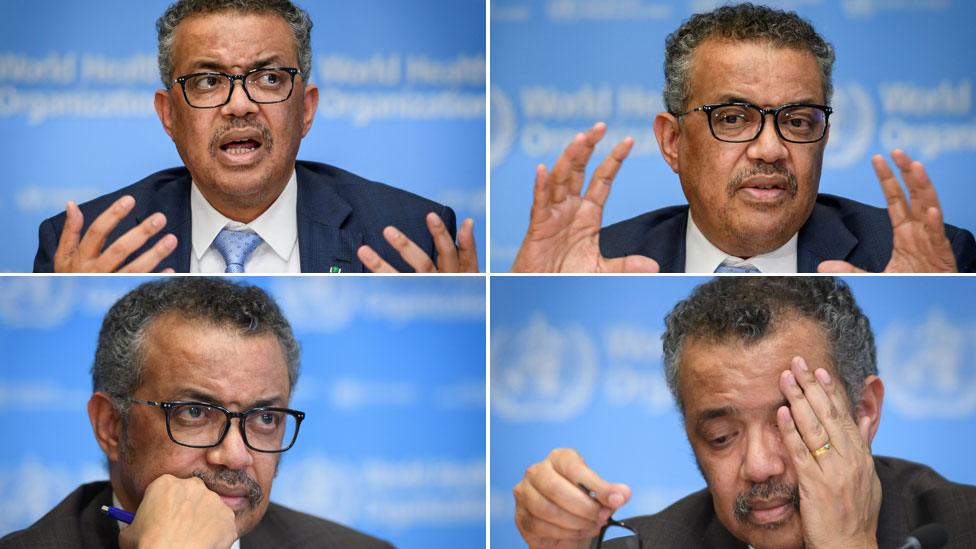WHO head tells Africa to 'wake up' to coronavirus threat
- Published
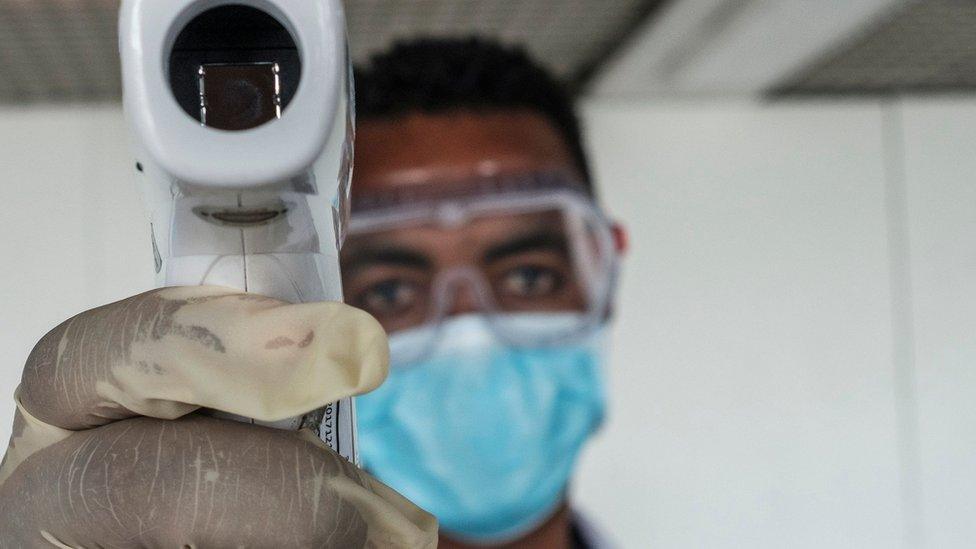
Most airports are screening travellers and travel restrictions are being brought in across Africa
Africa must "wake up" to the coronavirus threat and prepare for the worst, the head of the World Health Organization (WHO) has said.
The continent should learn from how the spread of virus has sped up elsewhere, Tedros Adhanom Ghebreyesus said.
He warned that while Africa's confirmed cases were currently low - around 640 - there was no reason for complacency.
"Africa should wake up, my continent should wake up," said the Ethiopian, the WHO's first African head.
Health experts warn that strained public health systems in Africa could become quickly overwhelmed if the virus takes hold, especially in overcrowded urban areas.
The BBC’s Andrew Harding looks at the impact Coronavirus could have in Africa
"WHO's recommendation is actually mass gatherings should be avoided and we should do all we can to cut it from the bud, expecting that the worst could happen," Mr Tedros told a news conference in Geneva, where the WHO is based.
In Africa, 16 people have died from Covid-19, the respiratory illness caused by coronavirus: six in Egypt, six in Algeria, two in Morocco, one in Sudan and one in Burkina Faso.
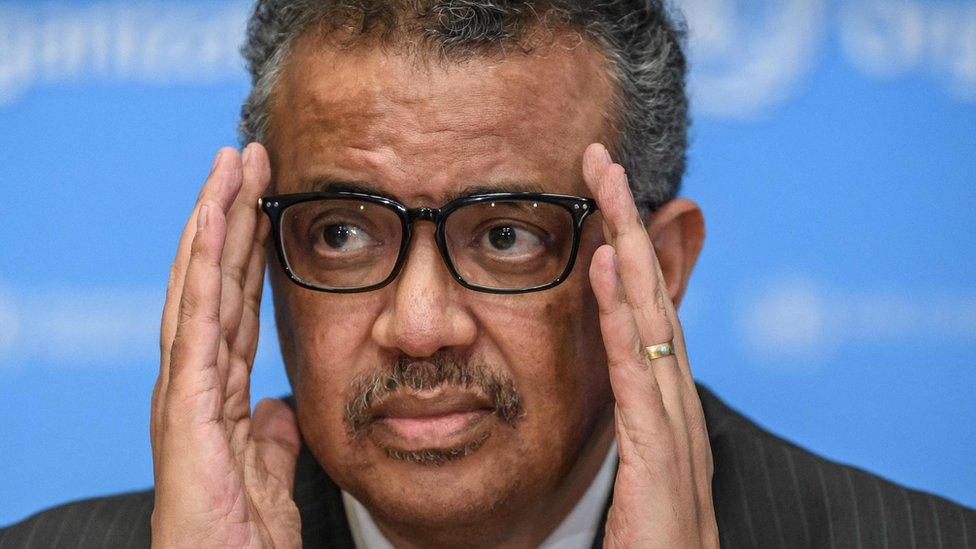
Tedros Adhanom Ghebreyesus, the first African head of the WHO, is leading the fight against coronavirus
In South Africa, which has 116 cases, President Cyril Ramaphosa has declared a state of disaster, restricting travel, closing schools, banning mass gatherings and ordering bars to close or limit numbers to 50.
The country has also banned all cruise ships from its ports. This comes despite tests coming back negative for six people on board a cruise ship, which had been put under quarantine. All 1,700 people are now free to leave the ship and return home.
Anyone breaking South Africa's coronavirus measures will be subject to a fine, or even imprisonment.
Other African nations have been imposing similar restrictions:
Lagos state, the economic hub of Nigeria, has banned gatherings of more than 50 people and schools will close from next week
Africa's most-populous country, which has eight coronavirus cases, is also stopping flights from any country where there are more than 1,000 infections from Saturday
Algeria, one of the worst-affected countries in Africa, has closed its borders and stopped flights
The president has also banned mass gatherings, which would affect the weekly big anti-government demonstrations
Rwanda, which has 11 patients with Covid-19, is banning passenger flights after Friday for 30 days
Kenya, a deeply religious country like most on the continent, has suspended worship in some churches and mosques
The government also says it will manufacture its own hand sanitiser and distribute it for free, in a bid to tackle shortages
Liberia, which dealt with a deadly Ebola outbreak several years ago and has two recorded cases of Covid-19, has stopped issuing passports to stop people travelling and earlier this week banned entry to those from countries worst affected by the pandemic
The Indian Ocean island of Mauritius has banned entry to tourists for two weeks - and confirmed its first three cases: two cruise ships workers and a British tourist
Zambia, with two Covid-19 cases, has suspended parliament and schools and university will close after Friday
Somalia, with one case, closed its air space overnight
Uganda and Botswana, which have no cases so far, will close schools from next week
Chad, with no cases, is suspending all passenger flights and closing some land borders from midnight on Thursday.



LIVE UPDATES: Follow the latest developments here
A SIMPLE GUIDE: What are the symptoms?
AVOIDING CONTACT: Should I self-isolate?
MAPS AND CHARTS: Visual guide to the outbreak
VIDEO: The 20-second hand wash

- Published14 March 2020
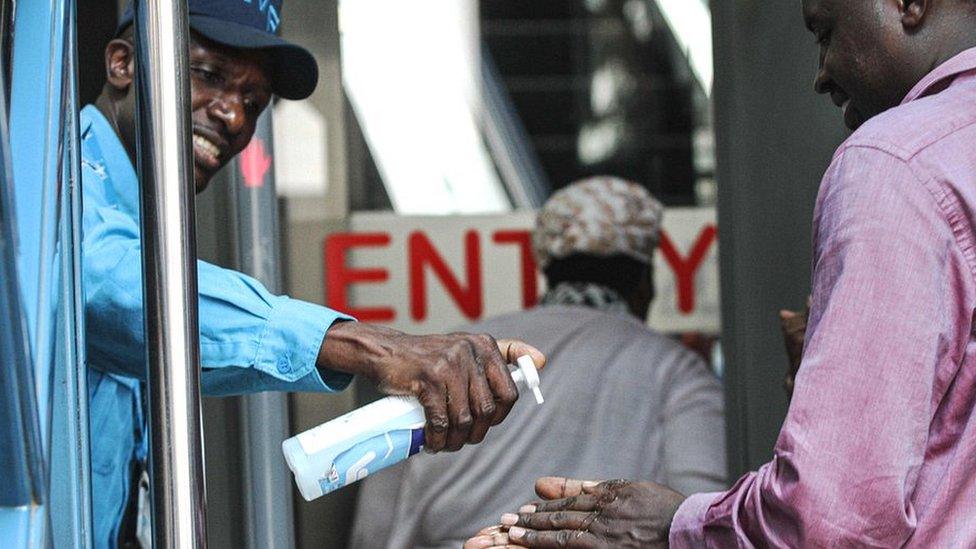
- Published9 March 2020
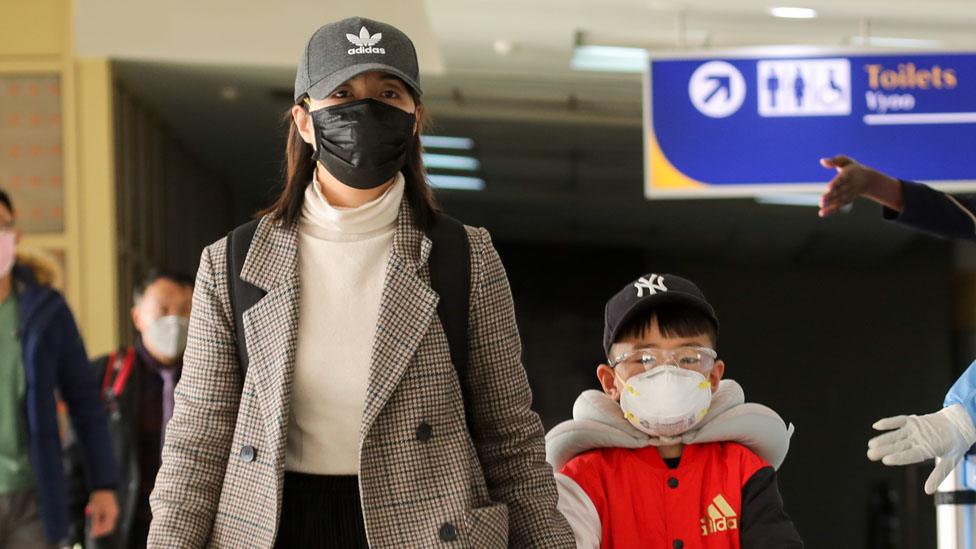
- Published7 May 2020
